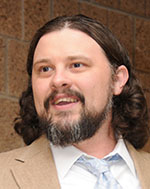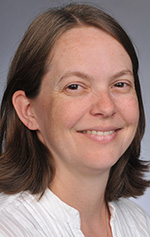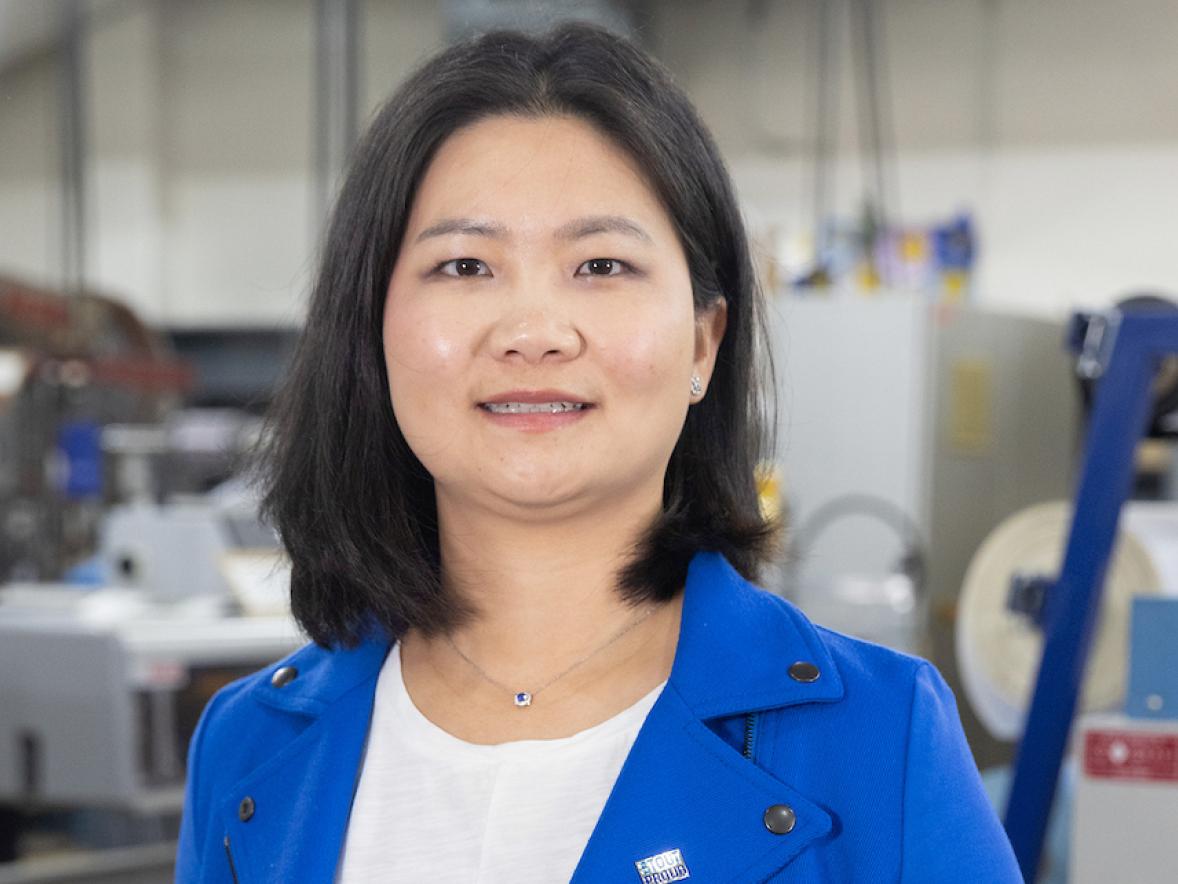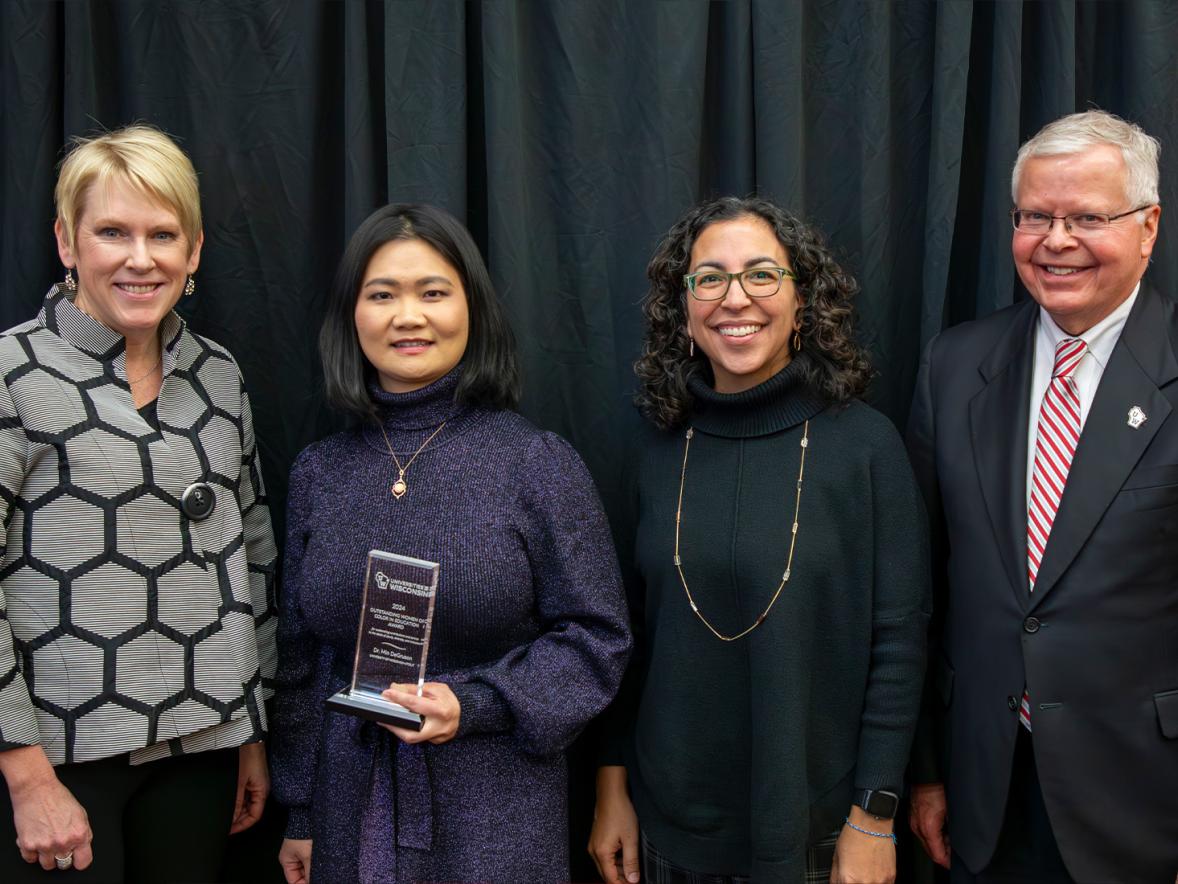The economic impacts of COVID-19, skyrocketing unemployment and impacts on the nation’s supply chain are some of the topics of a virtual panel discussion sponsored by University of Wisconsin-Stout’s Honors College and the social science department.
The discussion will feature experts representing diverse perspectives on the economy from 7 to 8 p.m. on Thursday, April 16. It is free and open to all.
 Scheduled UW-Stout panelists include Chris Ferguson, associate professor of economics and the Honors College director; Tina Lee, associate professor of anthropology and program director for applied social science.; Gene Gutman, associate professor of supply chain management and director of the supply chain management undergraduate program; and Chris Marshall, senior lecturer in history.
Scheduled UW-Stout panelists include Chris Ferguson, associate professor of economics and the Honors College director; Tina Lee, associate professor of anthropology and program director for applied social science.; Gene Gutman, associate professor of supply chain management and director of the supply chain management undergraduate program; and Chris Marshall, senior lecturer in history.
Students in the Honors College can access the event through Canvas. Others may use the guest link. The event may also be accessed through dial-in at 1-571-392-7650 and use the PIN: 534 276 0299.
“The coronavirus pandemic has caused tremendous economic hardship and uncertainty, and we really don’t know yet the true extent of the impact and where this is all headed,” said Thomas Pearson, a professor in the social science department and assistant director of the Honors College. “The impacts are registering globally and have the potential to devastate local communities in unexpected ways. Few people are untouched by the economic crisis, and many students are worried about what this means for their future. Hopefully, this panel will help people begin to make sense of the economic turmoil. We also want to provide a space where people can connect and build a sense of solidarity, despite the social distancing we are all practicing.”
Panelists will also respond to questions and comments.
As an anthropologist, Lee’s work focuses on race, class and gender inequality in the U.S. and specifically how public policies impact people who are disadvantaged by social structures.
“I’ve been thinking a lot about how our social policies — lack of paid sick leave for many workers, low wages in many industries, that health care is tied to our jobs, and lack of access to child care that is affordable — are impacting everyone’s health negatively and how problematic they are in a pandemic,” Lee said.
“When people need their jobs to access health care, and we are seeing tremendous spikes in jobless claims, there is a problem. Certain workers must put themselves and possibly their children at risk while others can work from home. I have read some heartbreaking things about people hospitalized who are worried about how they will pay the bills. In normal times, bills from accessing healthcare are overwhelming for too many in our society, and I see this as a major issue to be addressed.”
 As an anthropologist, Lee tends to think about the economy more broadly because her field studies humans in all times and places and takes lessons from people who have lived without the large, industrialized world economy.
As an anthropologist, Lee tends to think about the economy more broadly because her field studies humans in all times and places and takes lessons from people who have lived without the large, industrialized world economy.
“In our society, when we think about the economy, we often hear about how large corporations and investors are doing, and we tend to think about larger scale indicators (gross domestic product, unemployment rate, stock market indices). These are all important things, but I tend to look more broadly at how people meet their basic needs and how this can be supported, potentially outside of regular markets. I’m thinking a lot about how our government can, and in my mind should, be doing more to help people who have lost jobs. Several other countries are providing more income support, and this is something that should be implemented here, I think.”
Stimulus package good start
Ferguson said he believes the stimulus package passed to help Americans was a good start, but to prevent a really long and brutal recession or depression more is needed until unemployment stabilizes. “We also crucially need federal aid going to state and local governments who are going to be hit very hard and employ a large sector of the economy,” he noted.
Ferguson noted the economy is not closed; about 25% of it is in visible day-to-day things such as restaurants and stores. There isn’t a point to reopening some businesses until customers feel safe going to them. And it may harm those businesses and workers more through lost unemployment compensation or small business aid if they are open but empty.
“Until the health care system is solid, the economy can’t run with that collapsed, and it can’t run while everyone’s friends, families and colleagues are dying or in and out of the hospital,” he noted. “Once the health experts feel like we can safely come back out into the world, then everything can start to fall back into place. The important thing to be doing now, from an economic perspective, is putting the safety net in place so that we are in good shape for a quick recovery when we get the all-clear.”
Lee noted there is a disparity in infection, hospitalization and death between racial groups and income levels. “In Wisconsin, we are seeing these patterns in racial disparities in Madison and Milwaukee. Here in Dunn County, similar patterns could emerge if we start seeing more cases. Dunn County has a relatively large percentage of people who are one or two paychecks away from being able to make ends meet, and we see disparities in who has access to high-quality health care by class, with people who make less money and who live in rural areas having less access. There are many people in our community with chronic health conditions that place them at more risk as well.”
 Lee said she is optimistic Menomonie will be able to weather the economic impact of COVID-19 because of the diversity of larger businesses in the community and the community is very supportive of local businesses and each other.
Lee said she is optimistic Menomonie will be able to weather the economic impact of COVID-19 because of the diversity of larger businesses in the community and the community is very supportive of local businesses and each other.
“I’m also seeing people helping neighbors, offering to shop for people who are more at risk and can’t go to the grocery store, making masks for members of the community, signing up for community garden plots and offering to help mentor new gardeners,” Lee said. “These actions are a good sign that we have a strong community that I hope will emerge stronger.”
Ferguson plans to discuss rethinking the economy so it can be more resilient to future public health or natural disaster events.
“I think this is a time to look at some potential policies in a new light that we might not have taken very seriously previously,” he noted. “Things like universal basic income, universal health care, a rethinking of the 40-hour work week and sick leave/family leave, etc. All of these things have been viewed as too expensive or too unpopular, but ideas along these lines might be just as important for the country as maintaining a stockpile of ventilators and N95 masks if we want to be able to be agile and quick in responding to future crises like this in a way that prevents the economy from crashing.”
Honors College
The Honors College at UW-Stout offers innovative courses that go more in depth, provide opportunities to get outside the classroom and emphasize discussion.
The program includes academic opportunities to complement students’ undergraduate education, regardless of their majors and career goals. Students who join Honors College come from every major. The curriculum is designed to enrich their educational experience and help them become more creative thinkers and leaders.
UW-Stout offers a Bachelor of Science degree in applied social science with concentrations in economics, history and politics, and sociology and anthropology.
For more information on UW-Stout’s planning and response to COVID-19, go to www.uwstout.edu/coronavirus.
Photos
Chris Ferguson
Tina Lee
Honors College logo






